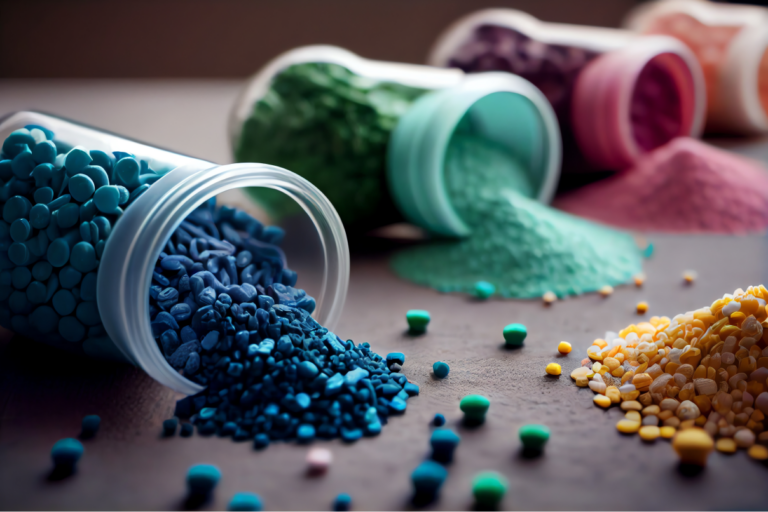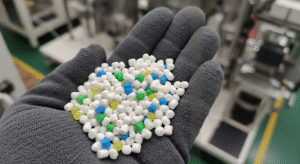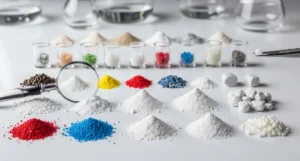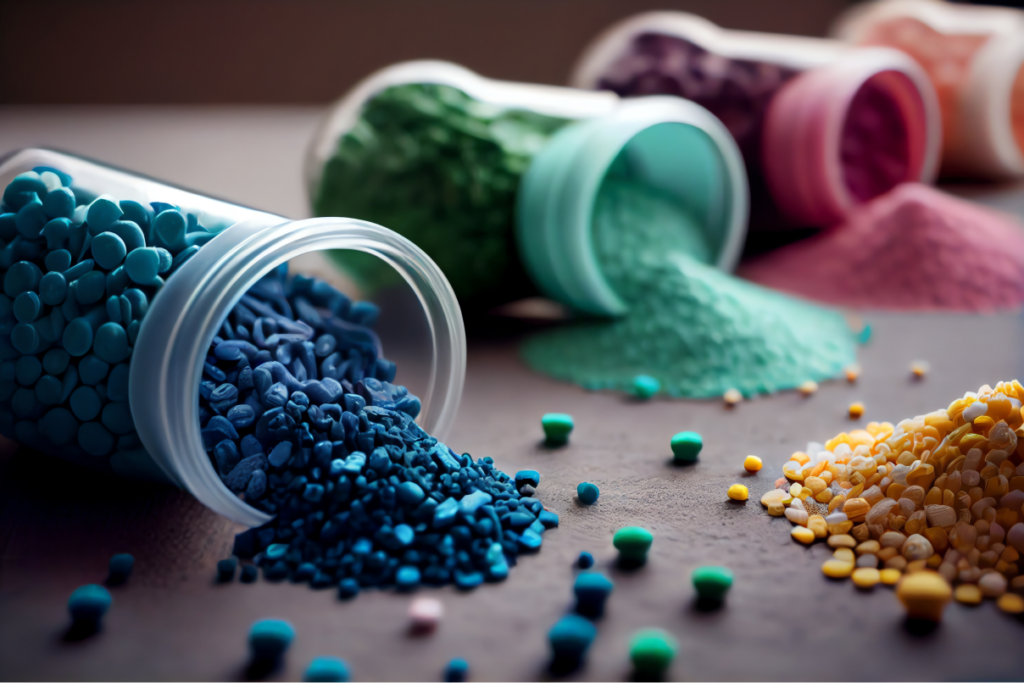
Plastics are often made of two main substances: polymers and additives. Each serves a specific purpose while giving plastic its unique characteristics.
What Are Polymers?
Polymers form the basis of plastics and are what keep everything together. They are large molecules that clump together and hold the additives that, together, make plastic.
Think of polymers like a building. Bricks form the walls, while everything else inside represents the additives that make the house unique.
There are different types of polymers—such as thermoplastics, thermosets, and elastomers—each offering specific mechanical and thermal properties. For example, polyethylene is flexible and lightweight, ideal for packaging, while polycarbonate is strong and heat-resistant, used in automotive parts and electronics. Selecting the right polymer type has a direct impact on production efficiency, performance, and sustainability goals.
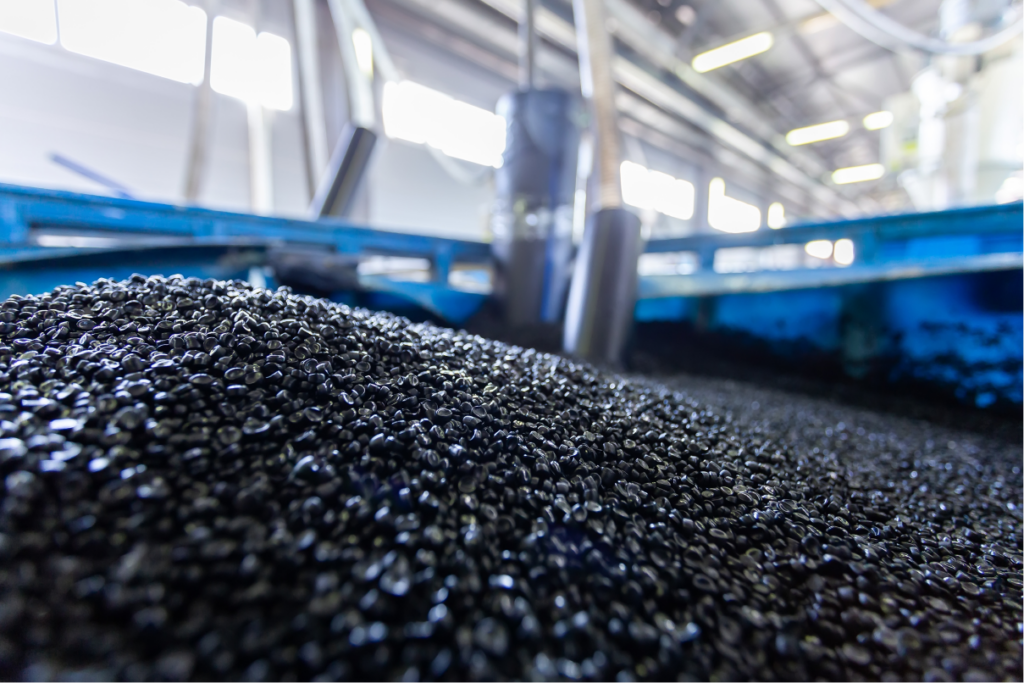
What Are Additives in Plastics Manufacturing?
Additives are chemicals or materials added to plastics to give them specific properties, and they are added and mixed uniformly while making the plastic.
There are many to choose from, depending on what unique properties you need. For example, some additives can make plastics:
- Temperature-resistant
- Chemically stable (they won’t react to chemicals)
- Stretchy or softer
- Different colors
- Harder and scratch-resistant
- Slippery
Many plastics are composed of more than one additive, based on what they are designed for.
Check out Phoenix Plastic’s product offering of over 200 additives.
Common categories include UV stabilizers, antioxidants, flame retardants, and anti-static agents.
Phoenix Plastics specializes in developing custom additive masterbatches that solve specific processing challenges—like improving flowability, preventing degradation, or enhancing long-term durability. This flexibility allows manufacturers across industries—packaging, construction, oil and gas, and more—to achieve exact performance outcomes.
Benefits of Choosing Specific Polymers and Additives
There are many reasons why companies spend so much time choosing specifics when making their plastics. When done right, companies can expect the following.
Reduce Costs
The right combination of materials to make a specific type of plastic means that fewer materials may be needed to make the plastic that has the right benefits. Companies invest time and effort into researching plastics to use the right one for the job and minimize waste. Additives can also improve processing efficiency—reducing cycle times, energy use, and wear on machinery during manufacturing. This not only lowers overall costs but also supports greener, more sustainable production practices.
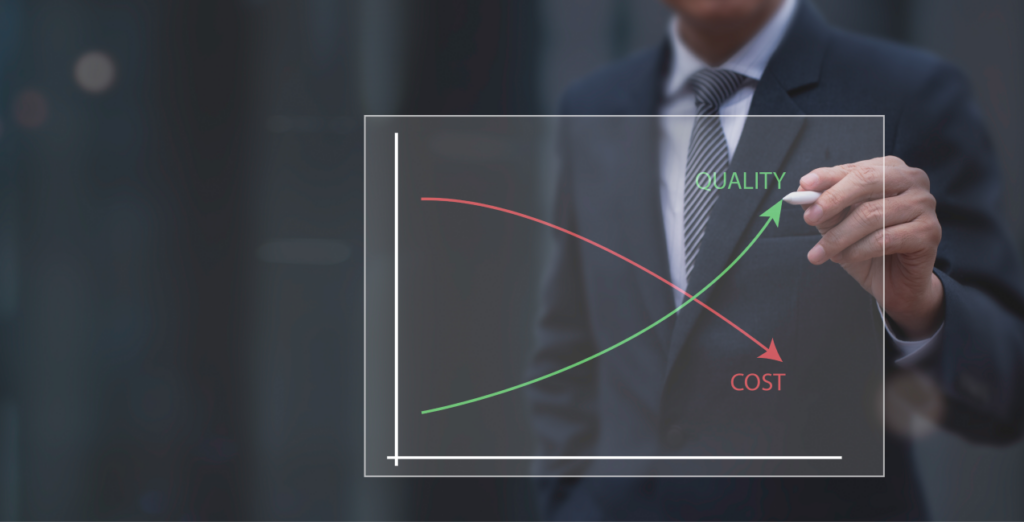
Extend Product Life
Every polymer has weaknesses, but suitable additives can overcome them. By focusing on polymers and additives, companies can extend the life of their plastics. Some polymers are UV-resistant, and the right additives can make them resistant to mold, bacteria, and heat. The result is a plastic that is perfect for use outdoors in the sun. Longer-lasting plastics mean fewer replacements, lower maintenance costs, and reduced environmental waste—key advantages for product manufacturers. Phoenix Plastics continuously researches additive advancements that improve recyclability, performance consistency, and environmental safety.
Research Your Options With Phoenix Plastics
The collection of polymers and additives at your disposal is extensive and complex, making it difficult to navigate on your own. Get help with your next project from Phoenix Plastics. Contact us now to get a quote on plastic additives for your project. Our technical experts can recommend formulations based on your production goals—whether you need enhanced clarity, impact resistance, or environmental protection.
Partnering with Phoenix Plastics ensures you access decades of compounding expertise, innovative additive technology, and American-made quality.

